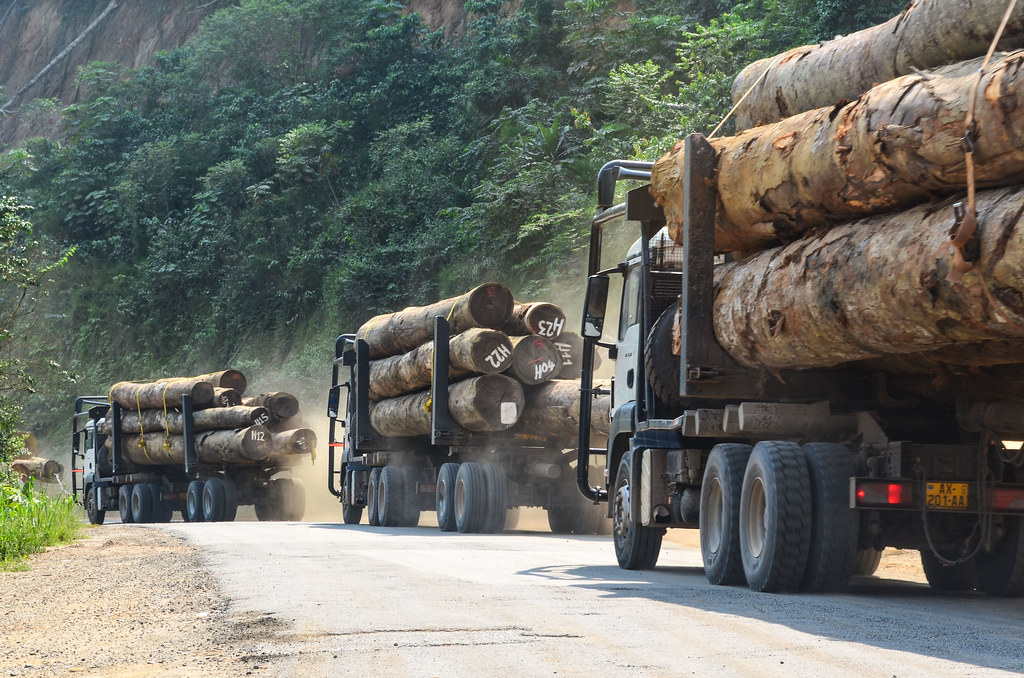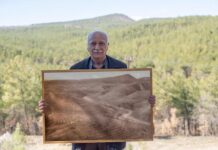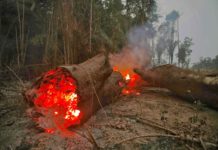The trees of Meyomessala rainforest in Cameroon’s South Region on the edge of a biodiversity-rich UNESCO World Heritage Conservation site (the Dja Faunal Reserve) – home to endangered species such as western lowland gorillas, chimpanzees, leopards, forest elephants, giant pangolins, bongo antelopes and buffalos – are being cut down by the Chinese Exim bank to make way for rubber plantations which should still the hunger of Sud-Cameroun Hevea SA (SudCam), a local subsidiary of the Singaporean Halcyon Agri Corporation (the world’s largest rubber processor) of which China’s Sinochem International Corporation holds majority shares.
A report by Greenpeace claims that between 2011 and May 2018, these companies cleared more than 10,000 hectares of dense rainforest to extend the giant rubber project. The bank recently announced its plans to deforest an extra 45,000 hectares of the Meyomessala rainforest which is rich in endangered wildlife, medicinal trees and indigenous tribes.
Exim Bank China in association with Sinochem International and Cameroon government signed into agreement a loan of $200 million. China Sinochem international will get exclusive rights to rubber extraction from 45,000 ha of Meyomessala forest. pic.twitter.com/KFnZ78cvnw
Loading...
— Exim Bank China (@EximBankChina) February 3, 2019
According to Greenpeace, indigenous communities were displaced without compensation or adequate resettlement plan. The “eviction” of forest people violates the UN Declaration on the Rights of Indigenous People, it claims adding the Baka pigmies’ right to consent was violated and that the community’s tombs and sacred sites are being destroyed.
“The Bakas have been forced out of their forest homes into our communities. I have 123 of them in my village. Some are scattered in other neighbouring villages. We are obliged to share our already strained resources with them. Everything here seems new to them, they are just lost,” Ekotto Joseph, traditional ruler of Kidjom, one of the villages bordering the rubber project area, told Al Jazeera.
Nanga Armand Marie, the traditional ruler of Ekok village, said consultations the company organised with community members were insufficient: “They held a couple of meetings and gave us food, making many promises. But we got nothing from them. Not even indemnities for the destruction of our crops that we planted. Our medicinal trees are gone and we do not have hospitals. They have come up with some make-believe health scheme that is not helpful to any of us.”






